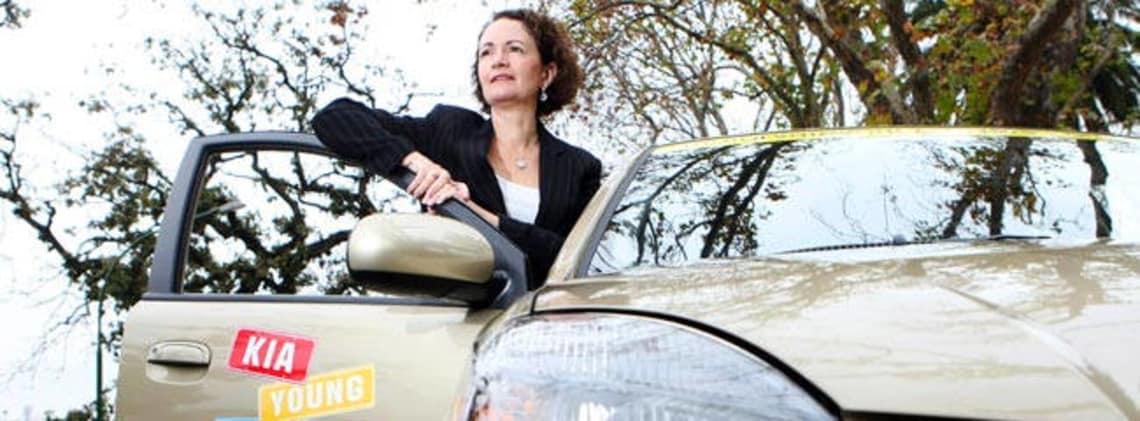
Teen driver training goes global

Motorvate safe driving expert, Jennie Hill, has been asked to talk about the teaching technique to delegates at this year's World Safety Conference in the UK in September.Hill says it is not new, but harnesses psychology to help change learner driver attitudes. "We have not invented something, we've just put it into words," she says.
The program is already having a positive impact on young drivers aged between 16 and 19 at Victorian schools. Hill and fellow Motorvate instructor, Geoff Fickling, wrote the successful Blood, Sweat and Gears book aimed at teenage drivers.
Fickling says the goal of the program is to help learners become more aware of the the act of driving as well as the pure mechanics. Hill says the proof of its success has been the overwhelming positive response from schools.
More than 80 Victorian schools have used the Motorvate technique. "The response from the teachers and parents is encouraging," Hill says. "But it's the kids that continue to surprise. They are fully on-board with our methods."
Fickling says young drivers fall into two distinct groups. "The first group are the demure drivers who believe they won't crash because they are careful and rarely exceed the speed limits," Fickling says "The second group are the dominant drivers and most young males fall into this category."
These drivers believe they have higher-than-average skills. "More males than females are dominant drivers, for reasons to do with male brain development," Fickling says.
"Put simply, male brains are generally better at spatial activities, and driving is spatial, so it is more interesting and enjoyable for many men." Fickling says driving also has two parts, "attitude" which relates to a driver's behaviour and motivation, as well as "action", the skills required to drive and prevent or control an emergency.
Demure drivers usually score highly on attitude, he says."They're fairly calm and law-abiding," Fickling says. But they are not action oriented, having few skills above those essential for gaining their licence and no interest in learning them, he says.
Conversely, dominant drivers score highly on action but have poor attitude. "They soak up practical knowledge and take any opportunity to `try out' cars," he says. "So if they get into an emergency, they have a better chance of recovering from it."
Fickling says boys take more risks and tend to think they are better drivers but this is not true. "About 80 per cent of the road toll involves dominant drivers," Fickling says.
"The more any driver thinks they're great and can't crash, the higher crash risk they actually have." Fickling believes current driver training is limited to a poor "one-size fits all" approach.
"Driver psychology is complex," he says. "But until we recognise these psychological traits and commit to whatever is needed to train young drivers more effectively, deaths - 500 a year in Australia alone - will remain high."








Comments